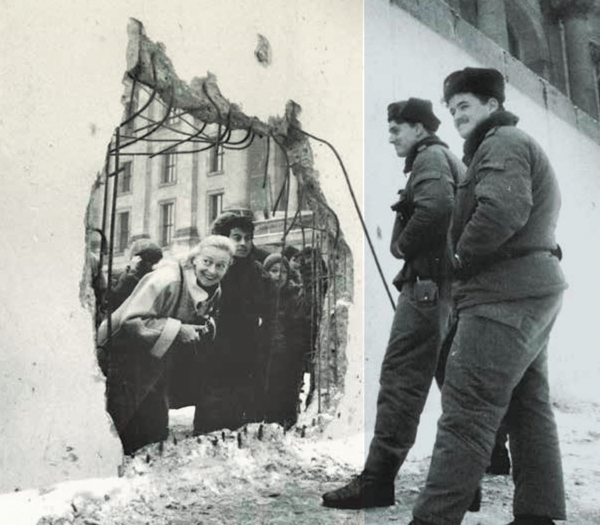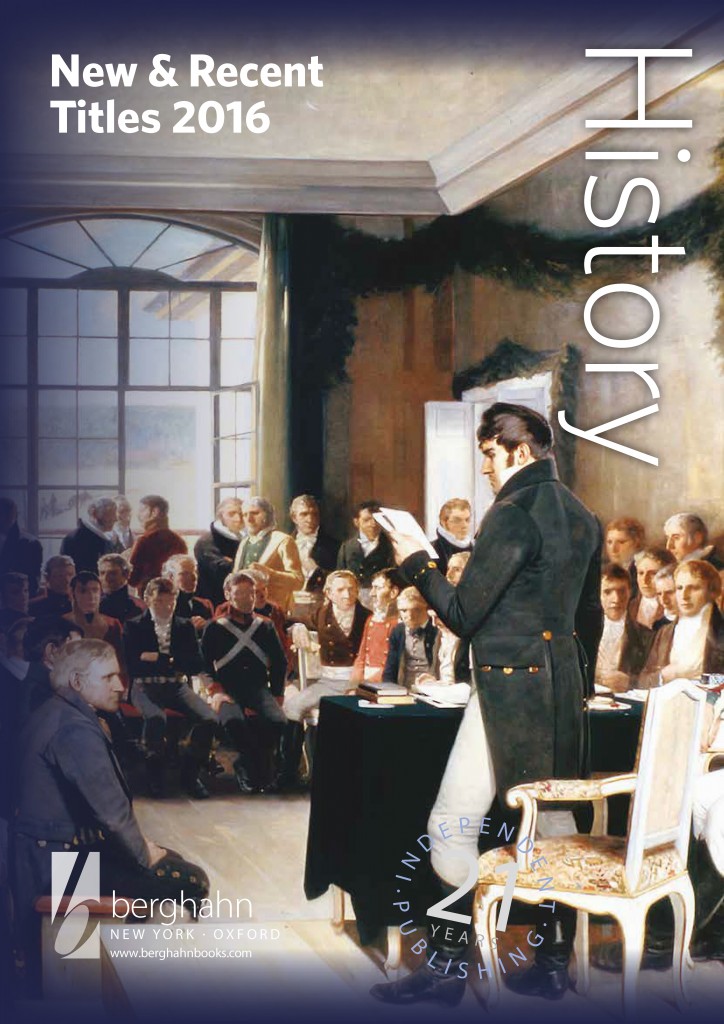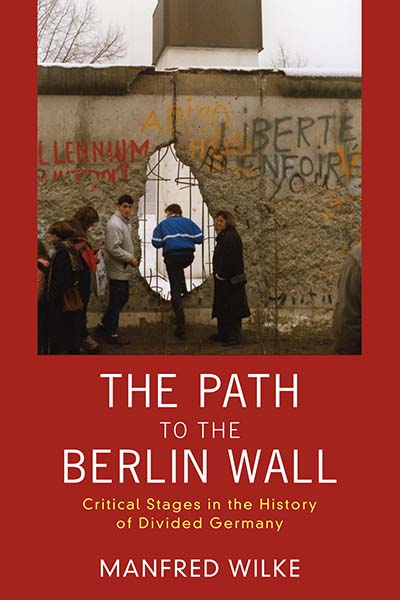
On the third anniversary of the start of the war in Ukraine, in solidarity and in an effort to deepen knowledge in social and cultural history of Ukraine, we are offering free access to these relevant journal articles and book chapters that focus on social and historical issues in Ukraine.

Carnage and Care on the Eastern Front: The War Diaries of Bernhard Bardach, 1914-1918
Bernhard Bardach
Translated and Edited by Peter C. Appelbaum
“[A] significant historical document and much-welcomed source for scholars of the military, social, and material history of World War I. It is also a valuable record for everyone interested in the history of war on the territories of present-day Ukraine and the eastern front in general […]” • Harvard Ukrainian Studies
- Introduction: Bernhard Bardach: A Biographical Sketch by Helmut Konrad

Resettlers and Survivors: Bukovina and the Politics of Belonging in West Germany and Israel, 1945–1989
Gaëlle Fisher
Located on the border of present-day Romania and Ukraine, the historical region of Bukovina was the site of widespread displacement and violence as it passed from Romanian to Soviet hands and back again during World War II. This study focuses on two groups of “Bukovinians”—ethnic Germans and German-speaking Jews—as they navigated dramatically changed political and social circumstances in and after 1945. Through comparisons of the narratives and self-conceptions of these groups, this book gives a nuanced account of how they dealt with the difficult legacies of World War II, while exploring Bukovina’s significance for them as both a geographical location and a “place of memory.”

New Imaginaries: Youthful Reinvention of Ukraine’s Cultural Paradigm
Edited and Translated by Marian J. Rubchak
Having been spared the constraints imposed on intellectual discourse by the totalitarian regime of the past, young Ukrainian scholars now engage with many Western ideological theories and practices in an atmosphere of intellectual freedom and uncensored scholarship. Displacing the Soviet legacy of prescribed thought and practices, this volume’s female contributors have infused their work with Western elements, although vestiges of Soviet-style ideas, research methodology, and writing linger. The result is the articulation of a “New Imaginaries” — neither Soviet nor Western — that offers a unique approach to the study of gender by presenting a portrait of Ukrainian society as seen through the eyes of a new generation of feminist scholars.

De-Commemoration: Removing Statues and Renaming Places
Edited by Sarah Gensburger and Jenny Wüstenberg
“[A]n inspirational collection of diverse approaches, practices, methods, and perspectives of de-commemoration of forgoing heroes and activities, set in various cultural and geographical contexts. This is an exceedingly rare and truly global contribution.” • Mariusz Czepczyński, University of Gdańsk
- Introduction: Making Sense of De-Commemoration by Sarah Gensburger and Jenny Wüstenberg
- Additional Recommendation: Chapter 7. Contrasting Fates of Lenin Statues in Ukraine and Russia by Dominique Colas

Memory and Change in Europe: Eastern Perspectives
Edited by Małgorzata Pakier and Joanna Wawrzyniak
In studies of a common European past, there is a significant lack of scholarship on the former Eastern Bloc countries. While understanding the importance of shifting the focus of European memory eastward, contributors to this volume avoid the trap of Eastern European exceptionalism, an assumption that this region’s experiences are too unique to render them comparable to the rest of Europe. They offer a reflection on memory from an Eastern European historical perspective, one that can be measured against, or applied to, historical experience in other parts of Europe. In this way, the authors situate studies on memory in Eastern Europe within the broader debate on European memory.
- Introduction: Memory and Change in Eastern Europe: How Special? by Małgorzata Pakier and Joanna Wawrzyniak
- Chapter 9. Shared Memory Culture? Nationalizing the ‘Great Patriotic War’ in the Ukrainian-Russian Borderlands by Tatiana Zhurzhenko

Topographies of Suffering: Buchenwald, Babi Yar, Lidice
Jessica Rapson
Commentary on memorials to the Holocaust has been plagued with a sense of “monument fatigue”, a feeling that landscape settings and national spaces provide little opportunity for meaningful engagement between present visitors and past victims. This book examines the Holocaust via three sites of murder by the Nazis: the former concentration camp at Buchenwald, Germany; the mass grave at Babi Yar, Ukraine; and the razed village of Lidice, Czech Republic. Bringing together recent scholarship from cultural memory and cultural geography, the author focuses on the way these violent histories are remembered, allowing these sites to emerge as dynamic transcultural landscapes of encounter in which difficult pasts can be represented and comprehended in the present. This leads to an examination of the role of the environment, or, more particularly, the ways in which the natural environment, co-opted in the process of killing, becomes a medium for remembrance.

Mapping Difference: The Many Faces of Women in Contemporary Ukraine
Edited by Marian J. Rubchak
Drawn from various disciplines and a broad spectrum of research interests, these essays reflect on the challenging issues confronting women in Ukraine today. The contributors are an interdisciplinary, transnational group of scholars from gender studies, feminist theory, history, anthropology, sociology, women’s studies, and literature. Among the issues they address are: the impact of migration, education, early socialization of gender roles, the role of the media in perpetuating and shaping negative stereotypes, the gendered nature of language, women and the media, literature by women, and local appropriation of gender and feminist theory. Each author offers a fresh and unique perspective on the current process of survival strategies and postcommunist identity reconstruction among Ukrainian women in their current climate of patriarchalism.
- Chapter 5. Biography as Political Geography: Patriotism in Ukranian Women’s Life Stories by Oksana Kis’
Journal Articles
Berghahn Journals is offering free access to the following relevant articles.
ANTHROPOLOGICAL JOURNAL OF EUROPEAN CULTURES
Geopolitical Transition of the European Body in Ukraine
Nadzeya Husakouskaya (Vol. 28, Issue 1)
DOI: 10.3167/ajec.2019.280110
Open Access!
ASPASIA
Love and Sex in Wartime: Controlling Women’s Sexuality in the Ukrainian Nationalist Underground
Marta Havryshko (Vol. 12)
DOI: 10.3167/asp.2018.120103
Underground waterlines: Explaining political quiescence of Ukrainian labor unions
Denys Gorbach (Vol. 2019, Issue 84)
DOI: 10.3167/fcl.2019.840103
The Ampel Coalition’s Foreign Policy Challenges
Jack Janes (Vol. 40, Issue 4)
DOI: 10.3167/gps.2022.400405
Inertia and Reactiveness in Germany’s Russia Policy: From the 2021 Federal Election to the Invasion of Ukraine in 2022
Jonas J. Driedger (Vol. 40, Issue 4)
DOI: 10.3167/gps.2022.400407
THE INTERNATIONAL JOURNAL OF SOCIAL QUALITY
Special Issue: A Thematic Issue about Central and Eastern European Societies (Vol. 10, Issue 2)
Social Quality in a Transitive Society: The Role of the State
Valeriy Heyets (Vol. 9, Issue 1)
DOI: 10.3167/IJSQ.2019.090103
Four Dimensions of Societal Transformation: An Introduction to the Problematique of Ukraine
Zuzana Novakova (Vol. 7, Issue 2)
DOI: 10.3167/IJSQ.2017.070202
Global inequality and policy selectivity in the periphery: The case of Ukrainian reforms in higher education
Viktoriia Muliavka (Vol. 12, Issue 1)
DOI: 10.3167/latiss.2019.120104
The Ukrainian divide: The power of historical narratives, imagined communities, and collective memories
Alina Penkala, Ilse Derluyn, and Ine Lietaert (Vol. 10, Issue 3)
DOI: 10.3167/reco.2020.100311
SOCIAL ANTHROPOLOGY/ANTHROPOLOGIE SOCIALE
Liberalism in fragments: Oligarchy and the liberal subject in Ukrainian news journalism
Taras Fedirko (Vol. 29, Issue 2)
DOI: 10.1111/1469-8676.13063





